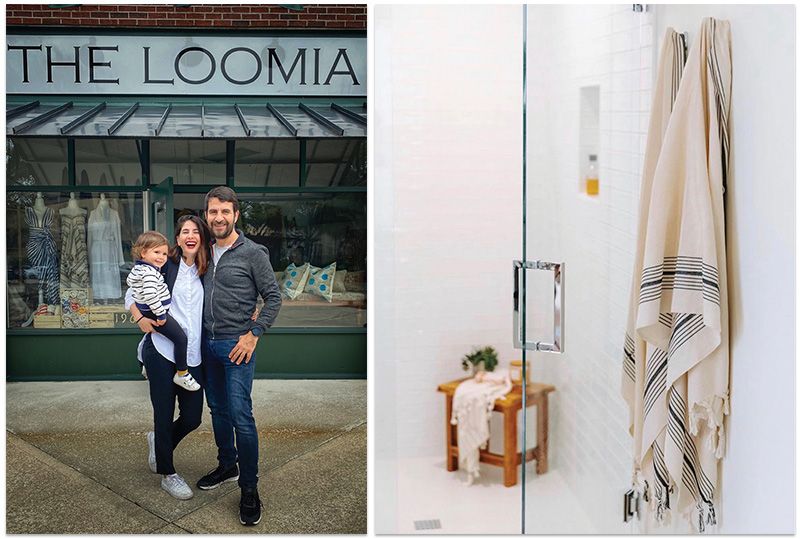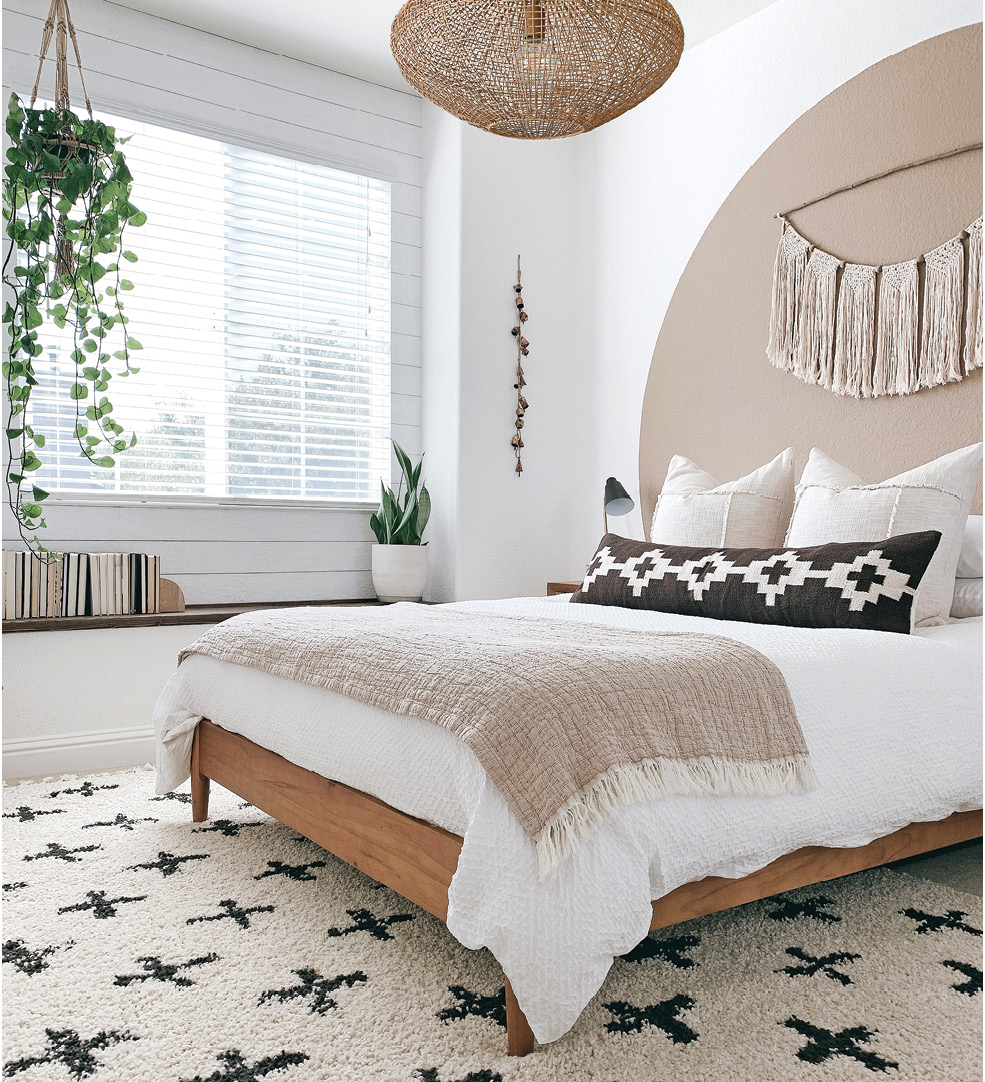How the boutique is faring after it held its grand opening just before the pandemic hit

(Left) Owners Fahri and Nilay Sengun with their son, Deniz, in front of their new Mount Pleasant store; (Right) The Loomia’s ”Zebrine” towels are made from all-natural bamboo.
Heritage meets hearth at The Loomia, where husband and wife Fahri and Nilay Sengun have brought a cherished piece of their Turkish culture to share with the Lowcountry. Their new specialty boutique features ethically made textiles sourced directly from native craftsmen in Turkey, including simple-yet-sophisticated kimonos, robes, handwoven towels, throws, and more in geometric patterns and neutral color palettes.
The entrepreneurial couple began their textile business in 2017 in Istanbul as an online store, and after a strong reception, they decided to grow both the business and their family in America. They settled in Charleston to be near Fahri’s cousin, Zuhal, who lives here. And since last November, the family, including three-year-old son, Deniz, have happily called Mount Pleasant home.
Following their move, Fahri and Nilay spent five months preparing to launch their first brick-and-mortar store at the Shoppes at Seaside Farms. They celebrated their grand opening in March, but the pandemic forced them to close their doors two weeks later. “We had just opened, so we had no idea how this would affect our beloved business,” Nilay says. “We put a lot of time and money into it, only to see it almost fail immediately. But we tried to stay positive!”
Since they reopened to customers in May, foot traffic has been slower than hoped, so they’ve relied on online sales, which make up more than half of their business, as well as clients who want to spruce up their homes and support small, locally owned businesses. “With so many people spending extra time at home, it seems they want to decorate more,” Nilay says.

The specialty boutique features versatile Turkish textiles in neutral color palettes
The couple remain optimistic they’ll see more in-store business as the holidays approach. They’ve partnered with popular local businesses Charleston Candle Company and Old Whaling Company to offer specially priced gift sets. In the coming year, they plan to introduce handmade Turkish shoes.
By naming their products after those dear to them—such as the popular “Deniz” bath and hand towels—Fahri and Nilay demonstrate that The Loomia is much more than a business. “We believe our products should be a reflection of the journeys we all take throughout our lives,” says Nilay. “Loomia products are designed with soul, story, and purpose.”
What is a Turkish towel and how do you care for it?
Breaking down the sought-after textile: